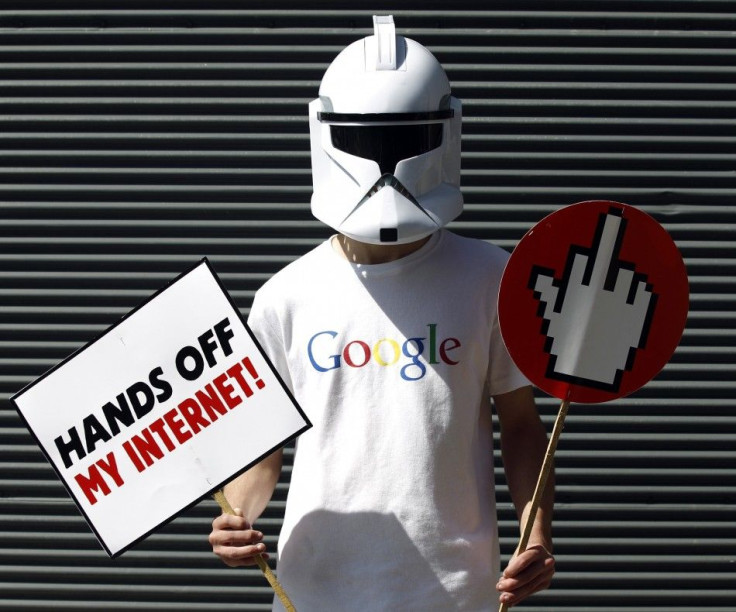SOPA: Google, Facebook Speak Out Against Internet Censorship in Letter to Congress

Some of the best and brightest U.S. technology companies, including Google, Facebook, Mozilla, Yahoo, Twitter, eBay, AOL, LinkedIn and Zynga, are speaking out against The Stop Online Piracy Act (SOPA) in the U.S. House of Representatives. In a letter addressed to Congress, which also appeared in a full-page ad in The New York Times Wednesday, the companies raised their concerns.
We support the bills' stated goals--providing additional enforcement tools to combat foreign rogue websites that are dedicated to copyright infringement or counterfeiting, the letter reads. Unfortunately, the bills as drafted would expose law-abiding U.S. Internet and technology companies to new uncertain liabilities, private rights of action and technology mandates that would require monitoring of Web sites.
SOPA is designed to thwart movie and music piracy on the Internet by empowering copyright holders to effectively shut down websites or online services found with infringing material. If passed, the government could blacklist any website which it deems in violation of copyright, which could range from a few posts in a Web forum to a few links sent in an e-mail.
Social blogging service Tumblr sums it up best:
As written, [Congress] would betray more than a decade of U.S. policy and advocacy of Internet freedom by establishing a censorship system using the same domain blacklisting technologies pioneered by China and Iran.
Yahoo exited the business trade group that supports the SOPA bill in October, and The Washington Post reports that Google and the Consumer Electronics Association are threatening to do the same.
We are very concerned that the bills as written would seriously undermine the effective mechanism Congress enacted in the Digital Millennium Copyright Act (DMCA) to provide safe harbor for Internet companies that act in good faith to remove infringing content from their sites, the letter said. Since their enactment in 1998, the DMCA's safe harbor provisions for online service providers have been a cornerstone of the U.S. Internet and technology industry's growth and success.
While we work together to find additional ways to target foreign 'rogue' sites, we should not jeopardize a foundational structure that has worked for content owners and Internet companies alike and provides certainty to innovators with new ideas for how people create, find, discuss and share information lawfully online.
A McKinsey Global Institute report found the Internet accounts for 3.4 percent of gross domestic product in the 13 countries studied, an amount the size of Spain or Canada in terms of GDP. The Internet's contribution to GDP in the U.S. is even larger.
The United States is the largest player in the global Internet supply ecosystem, capturing more than 30 percent of global Internet revenues and more than 40 percent of net income, the study said.
The Internet has been a driving force behind job creation as well. Of the 4,800 small- and medium-sized enterprises surveyed, the McKinsey Global Institute found the Internet created 2.6 jobs for each lost to technology-related efficiencies.
We are proud to be part of an industry that has been crucial to U.S. economic growth and job creation, the letter reads. If Internet consumption and expenditure were a sector, its contribution to GDP would be greater than energy, agriculture, communication, mining, or utilities... We urge you not to risk either this success or the tremendous benefits the Internet has brought to hundreds of millions of Americans and people around the world.
As Techland writer Jerry Brito says, There are some cures worse than the disease.
© Copyright IBTimes 2024. All rights reserved.






















